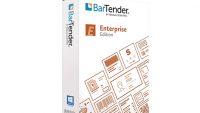Table of Contents
V-Ray Advanced for Revit overview
Introduction to V-Ray
V-Ray is a powerful and industry-standard rendering engine for 3D graphics and animations. It is widely used by artists, architects, product designers, and animators for creating high-quality visual content for films, games, architectural visualizations, and product designs. V-Ray is compatible with various 3D software, including 3Ds Max, SketchUp, Rhino, and Revit.
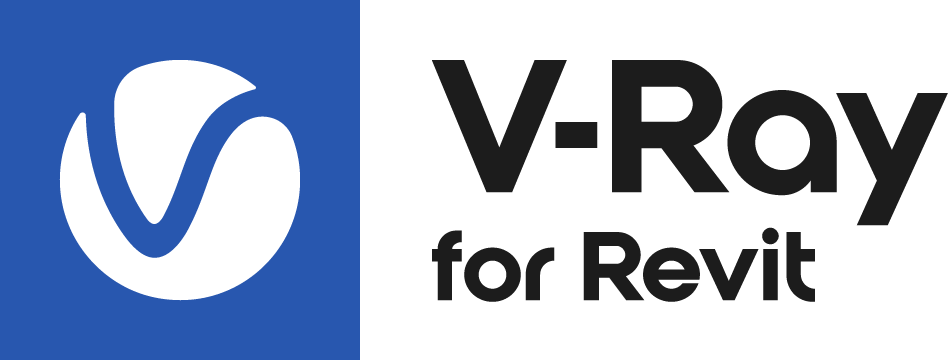
V-Ray Advanced for Revit
V-Ray Advanced for Revit is a powerful rendering engine designed specifically for use with the Autodesk Revit architectural design software. It allows architects and designers to create high-quality visualizations of their building designs, including photo-realistic images, animations, and virtual reality environments. With V-Ray for Revit, users can accurately simulate the look and feel of materials, lighting, and environments, providing them with a more immersive and convincing experience of their designs.
V-Ray for Revit offers a range of advanced features, including improved GPU rendering, Adaptive Lights, AI denoiser, V-Ray Cloud, and V-Ray Scene Intelligence, to enhance the workflow and productivity of designers. With its intuitive interface and seamless integration with Revit, V-Ray for Revit is a valuable tool for architects and designers who want to create high-quality visual content to showcase their designs.
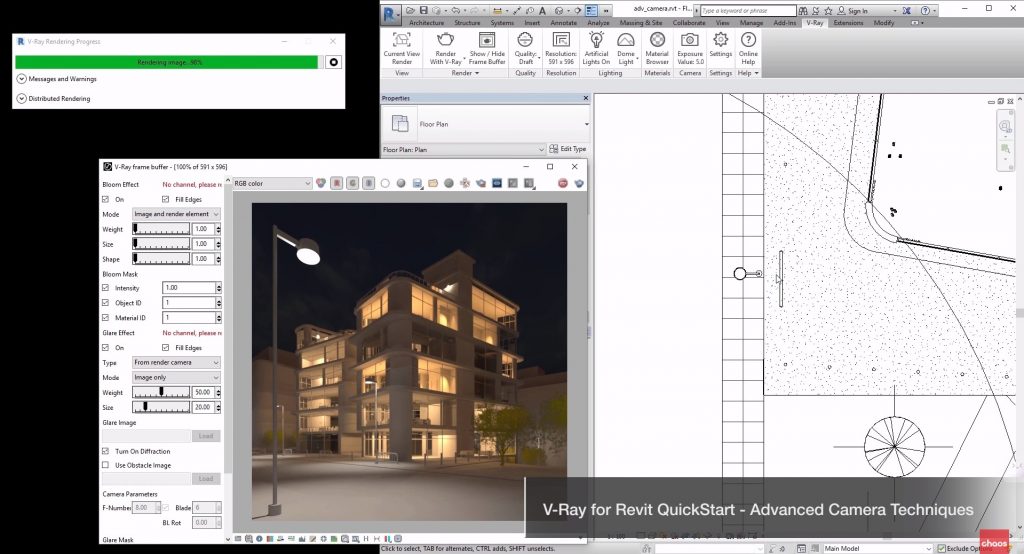
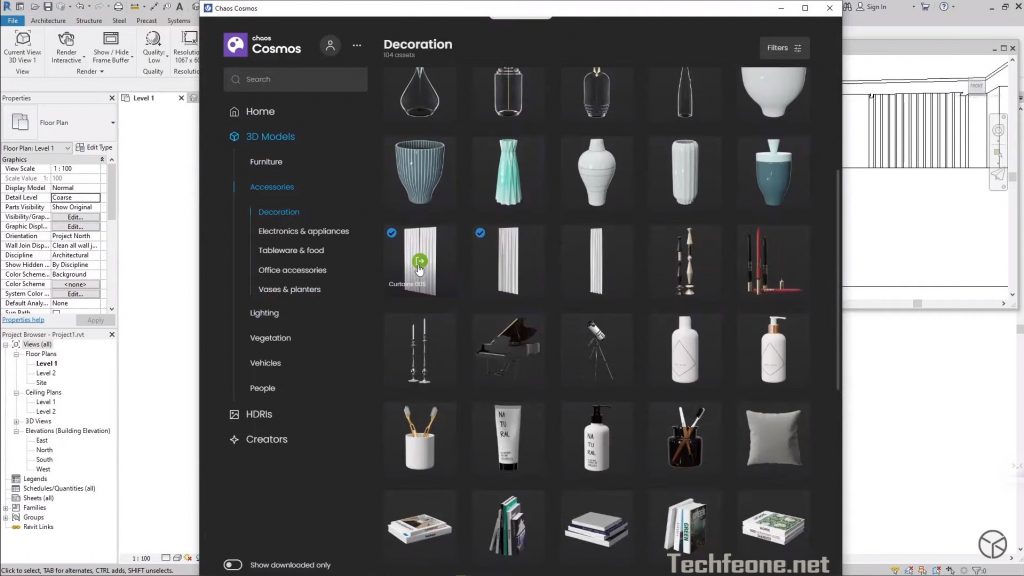
Features of V-Ray for Revit
V-Ray for Revit offers a range of advanced features to enhance the workflow and productivity of architects and designers:
- GPU rendering – V-Ray for Revit has a new GPU rendering architecture that offers faster performance and improved stability.
- Adaptive Lights – V-Ray for Revit introduces a new feature called Adaptive Lights, which improves the quality of lighting in scenes with a large number of lights.
- AI denoiser – V-Ray for Revit has an improved AI denoiser that significantly reduces render times and produces higher-quality results.
- V-Ray Cloud – V-Ray for Revit has a new cloud rendering feature that allows users to render large scenes on the cloud using multiple GPUs.
- Material Library – V-Ray for Revit includes a comprehensive library of materials, including physically accurate and ready-to-use materials, to help users create realistic and high-quality visualizations.
- V-Ray Scene Intelligence – V-Ray for Revit introduces a new feature called V-Ray Scene Intelligence, which uses machine learning algorithms to analyze the scene and suggest optimizations to improve the render time.
- IES Light Profiles – V-Ray for Revit includes a library of IES light profiles to help users create more accurate and realistic lighting in their visualizations.
- Integrated Chaos Group Cloud – V-Ray for Revit includes integrated access to the Chaos Group Cloud, which provides access to cloud resources for rendering and simulation.
- Seamless Integration – V-Ray for Revit has a seamless integration with Autodesk Revit, providing a smooth and intuitive workflow for architects and designers.
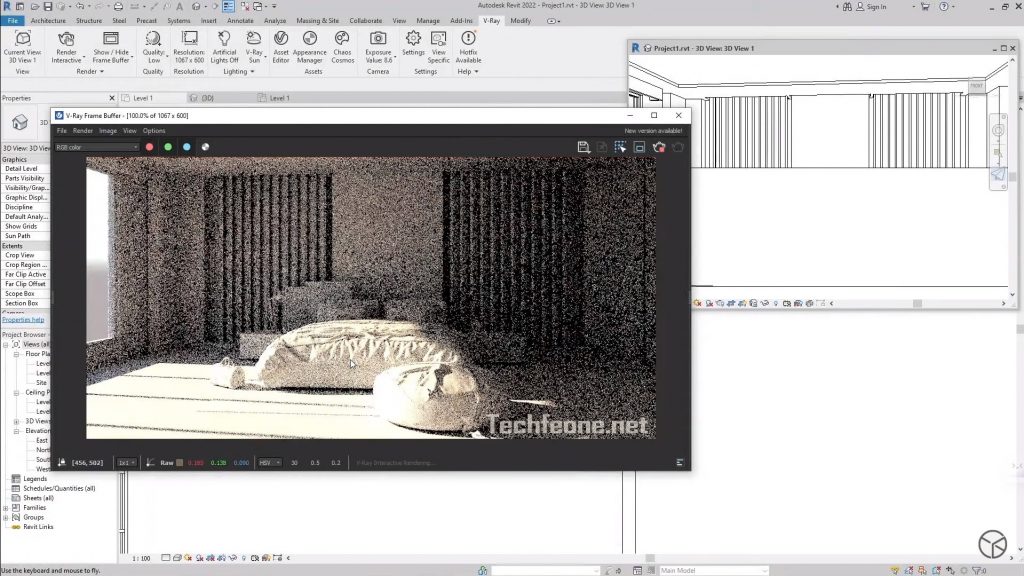
System Requirements for V-Ray for Revit
- Operating System: Windows 10 (64-bit), Windows 8.1 (64-bit), or Windows 7 SP1 (64-bit)
- Processor: Intel or AMD multi-core processor with 64-bit support
- RAM: 8 GB or higher
- Graphics card: NVIDIA or AMD with 2 GB VRAM or more, supporting OpenGL 3.3 or higher
- Display resolution: 1920 x 1080 or higher
- Disk space: 2 GB of free disk space for installation, additional disk space is required for rendering and scene files
Autodesk V-Ray for Revit free download and install
V-Ray Advanced 5.20.23 for Revit 2018-2023
V-Ray Next 4.10.02 Revit 2015-2020
Unzip Password (if any): techfeone.net
Note:
- Whenever a password is required for a packed file, it is always techfeone.net
- Installation instructions are in the downloaded file
- Please refer to the Readme.txt for installation and usage instructions.
- Disable anti-virus software and Windows Defender before extracting the files
How to install V-Ray for Revit
- First, Autodesk Revit must be installed.
- Extract the downloaded file
- Run Setup to install the program, not the License Server
- Copy the file V4RCore.dll to the location folder where V-Ray for Revit is installed. (C:\Program Files\Chaos Group\V-Ray\V-Ray for Revit)
- Copy cgauth.dll to the location where V-ray is installed (C:\Program Files\Chaos Group\V-Ray\V-Ray for Revit\Libraries\vrayappsdk\bin)
- Copy vray_BRDFScanned.dll to the place where the plugin is installed
(C:\Program Files\Chaos Group\V-Ray\V-Ray for Revit\Libraries\vrayappsdk\bin\vrayplugins) - Complete!





